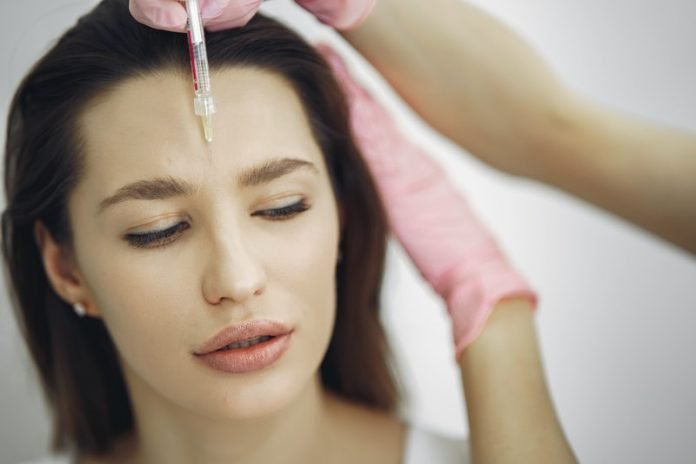
Botox, or Botulinum toxin, a medication derived from a bacterial toxin, is commonly injected to ease wrinkles, migraines, muscle spasms, excessive sweating and incontinence.
In a new study from the University of California San Diego, researchers found a new use thanks to the U.S. Food and Drug Administration (FDA)’s Adverse Effect Reporting System (FAERS) database.
In the database, nearly 40,000 people reported what happened to them after Botox treatment for a variety of reasons.
The team found that people receiving Botox injections at four different sites — not just in the forehead — reported anxiety significantly less often than patients undergoing different treatments for the same conditions.
They found that the reported anxiety risk was 22% to 72% lower in Botox-treated patients for four of eight conditions and injection sites: facial muscles for cosmetic use; facial and head muscles for migraine; upper and lower limbs for spasm and spasticity; and neck muscles for torticollis.
Anxiety disorders are the most common class of psychiatric disorders, according to the National Comorbidity Survey Replication.
According to the survey, 32 percent of the U.S. population are negatively affected by anxiety at some point in their lives, and treatments are ineffective for nearly one-third of them.
That’s why clinicians and researchers seek other therapeutic options.
The team says botulinum toxins could be transported to the regions of the central nervous systems involved in mood and emotions.
Alternatively, the Botox-affected neuromuscular junctions may directly communicate with the brain.
Finally, since Botox is commonly used to treat chronic conditions that may contribute to anxiety, its success in relieving the underlying problem may indirectly also relieve anxiety.
More research is needed to determine the mechanism by which Botox reduces anxiety, and clinical trials will be necessary to work out the best site and dose to administer the medication specifically for anxiety.
If you care about mental health, please read studies about therapy that can effectively treat pain, depression and anxiety, and findings of lithium in brain linked to depression.
For more information about health, please see recent studies about simple living habit that could hurt your mental health, and results showing that for older people, drugs may treat depression better than exercise.
The study is published in Scientific Reports. One author of the study is Ruben Abagyan, Ph.D.
Copyright © 2021 Knowridge Science Report. All rights reserved.



